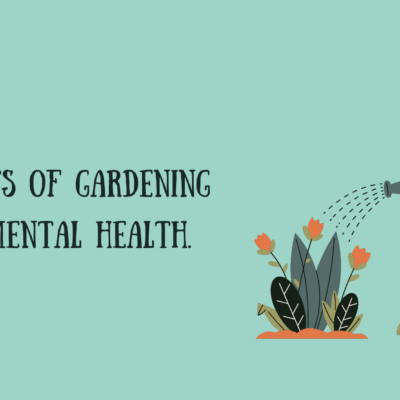Benefits of Gardening for Mental Health: Gardening, often seen as a simple and enjoyable pastime, has been shown to have significant mental health benefits. It is not only an activity that connects us with nature but also one that fosters relaxation, creativity, and emotional well-being. Whether you’re cultivating a small balcony garden, tending to a backyard, or simply growing a few plants indoors, gardening offers a variety of mental health benefits that go beyond the physical act of planting and nurturing.
Also Read:
- What Are the Best Way to Reduce Spending?
- Ways to Improve Mental and Emotional Health.
- How Tracking Spending Habits Can Help You Reach Your Financial Goals?
Benefits of Gardening for Mental Health:
Stress Reduction
One of the most immediate and noticeable mental health benefits of gardening is its ability to reduce stress. The act of gardening involves repetitive motions, such as planting, watering, and pruning, which can be meditative. These repetitive tasks help to calm the mind, focusing your attention away from daily stressors and worries. Research suggests that spending time in nature and engaging in gardening activities can lower levels of cortisol, the hormone associated with stress.
In addition, the natural environment itself plays a role in stress reduction. Studies have shown that being around greenery and natural landscapes has a calming effect on the mind. The soothing colors, sounds, and smells of nature can help create a peaceful atmosphere that reduces anxiety and promotes relaxation.
Improved Mood and Increased Happiness
Gardening has been linked to improved mood and an overall sense of happiness. The positive effects of gardening on mood may stem from the sense of accomplishment that comes with growing and nurturing plants. Watching a seed sprout and flourish into a full-grown plant is not only rewarding but also a reminder that patience and care yield positive outcomes.
Gardening also encourages mindfulness, which is the practice of being fully present in the moment. When you’re focused on tending to your garden, your mind becomes absorbed in the task at hand, which can help reduce negative thought patterns and promote a sense of joy. Studies have shown that engaging in nature-based activities like gardening can lead to significant improvements in mood, making it a natural antidote to feelings of sadness or depression.
Reduction in Symptoms of Anxiety and Depression
Many individuals struggling with mental health issues like anxiety and depression can benefit from gardening. Research indicates that spending time in a garden environment can lead to a significant reduction in symptoms of anxiety and depression. The physical activity involved in gardening, combined with the therapeutic benefits of connecting with nature, helps to release endorphins, the body’s natural “feel-good” chemicals.
The act of gardening also helps break the cycle of negative thoughts that can contribute to depression and anxiety. By focusing on a tangible task and spending time nurturing something living, individuals can feel a sense of accomplishment and purpose, which can counter feelings of helplessness and low self-esteem that are common in mental health struggles.
Enhanced Cognitive Function and Focus
Gardening is not just beneficial for emotional health, but also for cognitive function. The mental engagement required in gardening—whether planning a layout, researching plant care, or problem-solving when dealing with plant issues—helps improve cognitive skills like memory, concentration, and problem-solving.
In fact, some studies suggest that activities like gardening can delay or reduce the risk of cognitive decline in older adults. The mental stimulation provided by learning new gardening techniques or experimenting with different plant species can help keep the brain sharp and engaged, providing both mental and emotional benefits.
Connection with Nature and the Environment
One of the unique benefits of gardening is the connection it fosters with the natural world. Many people today spend much of their lives indoors, often detached from the environment. Gardening helps people reconnect with nature, offering a sense of grounding and tranquility. This connection with nature has been shown to improve mental well-being by fostering a sense of peace and purpose.
Gardening encourages awareness of the seasons, weather patterns, and the growth cycles of plants. It provides an opportunity to observe nature’s rhythms, which can promote a sense of belonging to the natural world. This sense of connection is particularly valuable in a fast-paced world where many people feel disconnected from the environment.
Physical Exercise and Outdoor Exposure
Gardening is a physical activity that provides moderate exercise, which is beneficial for both physical and mental health. Digging, planting, weeding, and other gardening tasks involve movement and physical exertion, which can help increase blood flow, improve fitness, and boost overall energy levels.
Additionally, gardening encourages people to spend time outdoors, which has its own set of mental health benefits. Sunlight exposure increases vitamin D levels, which has been linked to improved mood and mental health. Being outdoors also provides the opportunity to breathe fresh air, which can improve oxygen flow to the brain and enhance cognitive function. The combination of physical exercise and outdoor exposure helps combat feelings of fatigue and lethargy, improving overall well-being.
Social Interaction and Community Engagement
Gardening can also provide an opportunity for social interaction, which is essential for mental health. Many people participate in community gardens or gardening clubs, where they can connect with others who share similar interests. These social connections help combat feelings of isolation and loneliness, which are common in individuals experiencing mental health challenges.
Community gardening fosters a sense of belonging and teamwork, as people work together to care for a shared space. Social interactions in these settings can boost self-esteem and create a supportive network of individuals who encourage each other. For individuals who may struggle with social anxiety or isolation, gardening can provide a low-pressure environment in which to engage with others and build meaningful relationships.
Promoting a Sense of Accomplishment
Gardening offers a sense of achievement that can have a positive impact on mental health. Growing and nurturing plants, watching them thrive, and seeing the results of your hard work can instill a sense of pride and accomplishment. This feeling of success can help build self-esteem and confidence, particularly in those who may be struggling with feelings of inadequacy or hopelessness.
Additionally, gardening allows individuals to set goals and see them through to completion. Whether it’s planting a vegetable garden or creating a beautiful flower bed, accomplishing tasks in the garden can provide a sense of purpose and fulfillment. This sense of achievement can help alleviate feelings of frustration and improve overall mental outlook.
Mindfulness and Meditation
Gardening is often described as a form of mindfulness or moving meditation. The quiet, repetitive actions involved in gardening—such as watering, pruning, or planting—can help individuals enter a state of mindfulness, where they focus solely on the present moment. Mindfulness practices have been shown to reduce stress, improve emotional regulation, and enhance overall well-being.
For individuals who find it difficult to practice traditional meditation, gardening provides an alternative that is both accessible and enjoyable. The act of being present with nature, focusing on nurturing life, and allowing time for quiet reflection can be deeply therapeutic and calming.
At The End
Gardening is much more than just a hobby; it is a powerful tool for enhancing mental health. From reducing stress and improving mood to fostering cognitive function and emotional well-being, the benefits of gardening are numerous. Whether you have a small indoor garden or a large outdoor space, spending time in nature and cultivating plants can provide a variety of mental health benefits. It encourages mindfulness, promotes physical activity, and fosters a sense of accomplishment, making it an excellent practice for anyone looking to boost their mental health.








